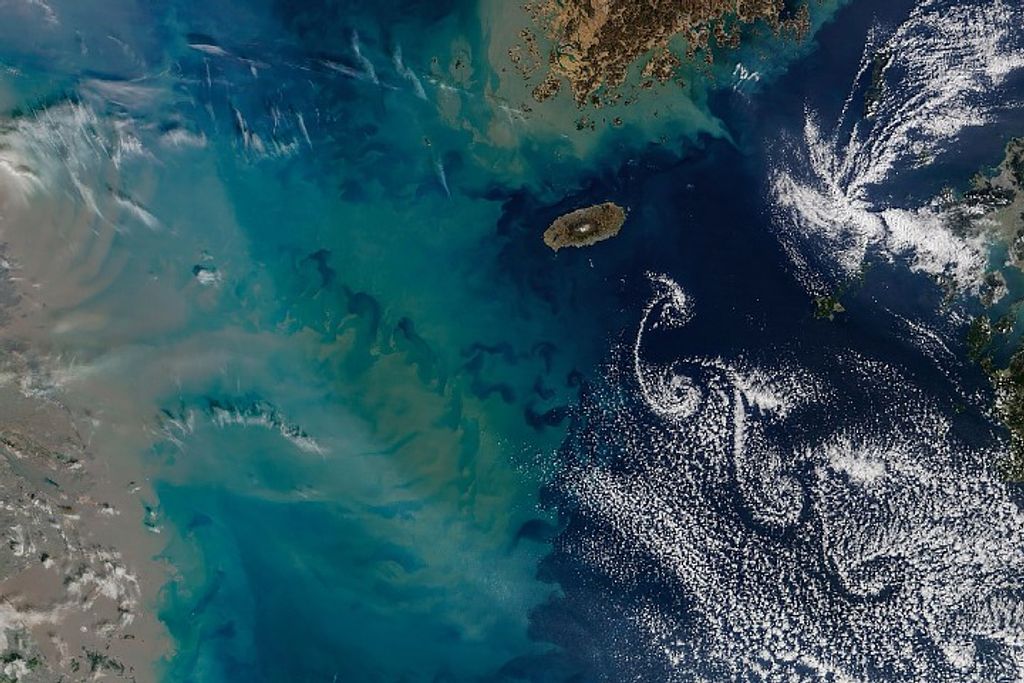ISS Daily Summary Report – 3/01/2024
Payloads:
Boeing Environment Responding Antimicrobial Coatings-2 (AC-2): The crew performed a routine, periodic touching of two of the six experiment placards deployed in various locations throughout the ISS. AC-2 tests an antimicrobial coating on several different materials that represent high-touch surfaces. Some microbes change characteristics in microgravity, which could create new risks to crew health and spacecraft systems as well as creating the possibility of contaminating other planetary bodies. The samples remain in space approximately six months then return to Earth for analysis.
Complement of Integrated Protocols for Human Exploration Research on Varying Mission Durations (CIPHER): Hardware for the 13-hour blood pressure measurement session and the Bio-monitor 48-hour measurement session were doffed and stowed. The CIPHER investigation aims to improve our understanding of physiological and psychological changes in humans on missions that range from weeks to one year in duration. Conducting the same research over missions of different durations allows scientists to extrapolate the data to multi-year missions, such as a potential three-year round-trip to Mars. This data could provide deeper knowledge about changes that may occur on such missions and support the development of countermeasures to promote astronaut health and well-being.
Flawless Space Fibers-1: Following a very successful fiber pull yesterday, the processed preform and spool were exchanged for the next in the series to be processed. Production of Flawless Space Fibers-1 tests new hardware and processes for producing high-quality optical fibers in space. Previous studies have shown improved properties in fibers produced in the absence of Earth’s gravity, which can degrade the fibers. The ISS provides a platform for rapid production of high-quality fibers with applications in remote sensing and communications in space and on the ground.
Fluid Science Laboratory (FSL) Soft Matter Dynamics – FOAM: The five currently installed FOAM coarsening samples were exchanged with four Compacted Granular Samples and one Reference Sample inside the Soft Matter Dynamics (SMD) Experiment Container installed in FSL. FSL Soft Matter Dynamics – Hydrodynamics of Wet Foams (Foam Coarsening) aims to investigate bubble size and rearrangement dynamics for “wet foams”. Microgravity offers the opportunity to investigate such “wet” foams, which cannot be stabilized on Earth because of drainage. Moreover, microgravity conditions are essential to study rearrangement phenomena, such as coarsening and coalescence, disentangled from drainage.
Space Health: The Space Health Questionnaire was completed using the Data Collection tool on a Station Support Computer (SSC). The Autonomous Health Monitoring for Adaption Assessment on Long Range Missions Using Big Data Analytic (Space Health) investigation utilizes the Bio-Monitor system for physiological monitoring before, during, and after an ISS mission to assess the effect of space travel on heart health. The potential use of the Bio-Monitor system on the Artemis analytical platform for future space missions is being evaluated. The Artemis analytical platform is used to provide automated analysis of the cardiovascular system in order to develop a near real-time assessment tool during long range missions.
Systems:
Urine Processor Assembly (UPA) Fluids Control and Pump Assembly (FCPA) Remove & Replace (R&R): The crew completed activities to R&R the FCPA on the UPA in order to return the UPA to nominal operation. The crew removed the Waste and Hygiene Compartment (WHC) Stall, removed Toilet, gathered the spare FCPA, performed the R&R, and reinstalled both the WHC Stall and Toilet. Yesterday, UPA faulted and transitioned to STOP after the FCPA motor current experienced a current spike. After reviewing data, ground teams declared the FCPA failed and decided to perform an R&R. UPA is now in the process of being activated.
In-Flight Maintenance (IFM) Crew Quarters (CQ) Cleaning: Following yesterday’s Port CQ clean, the crew cleaned the Deck & Overhead CQ Intake and Exhaust Ducts, Fans, and Airflow Sensors to remove any dust or blockages. This cleaning is in preparation for the upcoming arrival of Crew-8. All USOS Crew-7 crewmembers are responsible for performing a nominal cleaning of their CQ prior to the crew handover. Crew-8 is currently planned to launch on Saturday, March 2nd, at approximately 10:16 PM CST and arrive at the ISS on Sunday, March 3rd, at approximately 1:15 PM CST.
Crew Departure Preparations for Return to Earth: The Crew-7 crew conducted preparations for their return home. The crew is allotted time throughout the final two weeks of their stay to use at their discretion to prepare the ISS for the arriving crew and to prepare personal items for return. Crew-7 is currently planned to undock from the ISS on Sunday, March 10th.
Transfer Cygnus Cargo Operations: Today, the crew performed cargo transfer operations between the ISS and the NG-20 cargo vehicle. NG-20 arrived on February 1st and is scheduled to remain on the ISS until July when it will be unberthed for an eventual destructive re-entry in the Earth’s atmosphere. Due to its destructive re-entry, Cygnus provides an opportunity to offload some of the unwanted mass onboard the ISS.
Look Ahead Plan
Saturday, March 2 (GMT 062)
Payloads:
- CIPHER Bio-Monitor Stow
Systems:
- Crew-8 Launch
- Crew Off Duty

























